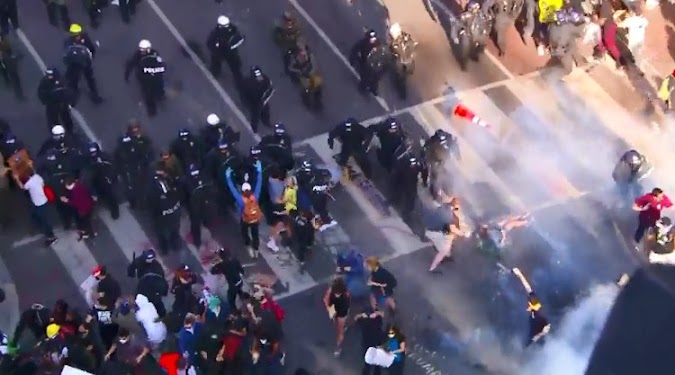Trump's evident character flaws leave him unable to meet the historic moment
"In a president, character is everything," composed the eminent speech specialist Peggy Noonan. Also, in that lies President Donald Trump's powerlessness to meet this American second.
Noonan alluded, in a paper celebrating her old supervisor Ronald Reagan, to the human characteristics behind fruitful authority in the White House. Sympathy, mental fortitude, vision, goodness, realism - these characteristics have yielded the presidential minutes that reverberate through history.
The clear nonattendance of those characteristics in Trump leaves him interestingly sick prepared to deal with the entwined difficulties of a general wellbeing pandemic, monetary breakdown and racial clash that the country currently faces. The outcomes have kindled ill will, division and hardship the country over.
Consider a portion of the mark occasions that characterized CEOs in the course of the only remaining century. They scratch an unflattering diverge from the present occupant.
After Pearl Harbor, Franklin Roosevelt braced Americans for the battle ahead by leveling with them: "It won't just be a long war, it will be a hard war." Trump has deluded Americans about numerous parts of the present emergency - making light of the coronavirus danger, misrepresenting chances for quick monetary recuperation, mutilating the idea of fights by portraying members as "pyromaniacs, raiders, crooks and agitators needing to demolish ... our nation."
Harry Truman exhibited presidential responsibility by acknowledging "it's time to take care of business." Trump evades the buck, demanding in the White House Rose Garden that, "I don't assume liability by any stretch of the imagination" for coronavirus disappointments.
Dwight Eisenhower utilized the remarkable forces of his office for central national purposes by sending government troops to secure dark understudies coordinating Arkansas schools. Trump sent government officials to coercively scatter Americans calmly fighting the police slaughtering of an unarmed dark man.
John F. Kennedy brought the country to shared purposes: "Ask not what your nation can accomplish for you, approach what you can accomplish for your nation." When the Bay of Pigs intrusion of Cuba on his watch transformed into a disaster, Kennedy acknowledged moral duty.
Trump makes self-magnification his steady subject, telling Americans "only i can fix it" and openly expressing gratitude toward himself for positive turns of events. Unerringly, he reacts to mishaps on coronavirus, common turmoil and whatever else by accusing others.
Lyndon Johnson propelled the American perfect of correspondence with social equality enactment, even as he anticipated precisely that it would undermine his ideological group in the South. The white voters repulsed by that choice helped Republicans command presidential races for an age.
Since a changed national electorate lean towards Democrats, Trump joins individual Republicans in restricting endeavors to ease casting a ballot during the pandemic danger. He recognizes that higher democratic levels hurt Republicans.
Ronald Reagan animated an ambushed country with the vision of America as a "sparkling city on a slope." His first debut put "optimism and reasonable play" at the center of the nation's quality.
Trump guarded the Russian dictator whose knowledge administrations helped his crusade by disparaging America itself, telling a questioner, "You think our nation's so honest?" His debut blamed antecedents for dispensing "butchery" on constituents for their own benefit.
George W. Shrubbery looked to shield Muslim Americans from dogmatism by visiting a mosque after al Qaeda's 9/11 assaults. Trump places racial division at the core of his political system, utilizing the pandemic as an appearance to confine visas for new contestants and oust refuge searchers.
Barack Obama utilized strict confidence to comfort a country shaken by the 2015 Charleston church slaughter, conveying a commendation and driving his crowd in "Astonishing Grace." Trump, when dissenters in his way had been coercively evacuated, strolled a square from the White House just to be shot before a congregation, holding a Bible overhead.
Richard Nixon, who because of Watergate wrongdoings, turned into the main president to leave, styled himself a "peace" president, shielding America's "quiet larger part." Trump conjures those mottos as he imitates Nixon's polarizing strategies.
Be that as it may, even Nixon, anyway clumsily, when gone out in the center of the night to chat with against war dissidents at the Lincoln Memorial, no cameras present. A week ago, troops were sent to hinder the remembrance's means.
Open Comments
Close Comments


Post a Comment for "Trump's evident character flaws leave him unable to meet the historic moment"